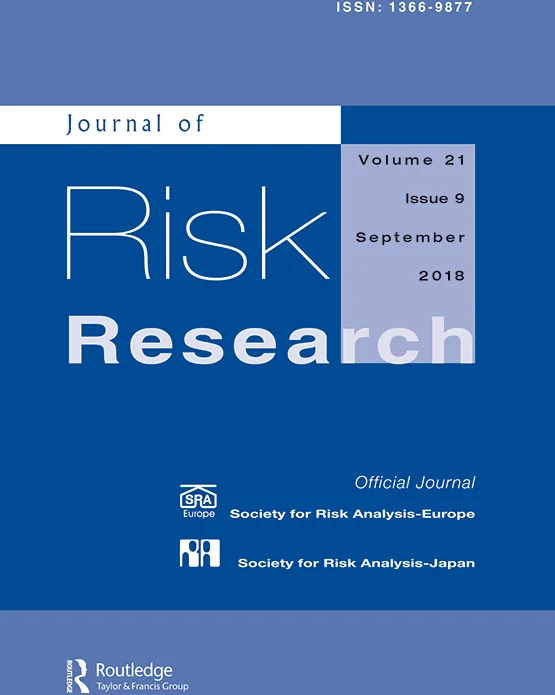“我们所要做的就是不确定”:评估欧洲食品安全和风险治理中“制度不确定性的放大”
IF 2.4
4区 管理学
Q1 SOCIAL SCIENCES, INTERDISCIPLINARY
引用次数: 2
摘要
摘要本文阐述了欧洲食品安全局(EFSA)近年来为在其风险评估程序和沟通中识别、表示和公开披露科学不确定性所做的努力,这一过程在本文中被恰当地描述为“制度不确定性的放大”。我们认为,尽管EFSA新的不确定性改革为学术和政策对话开辟了一个受欢迎的空间,但这一战略举措仍将难以调和利益相关者对该机构科学意见和专家建议的合法性、方向和权威性的持续担忧。我们观察到,长期存在的政策紧张局势是EFSA指令的核心,该指令要求官员一方面公开透明,另一方面不受政治影响,与风险管理决策保持距离,这预示着EFSA不确定性改革的启动。因此,所采取的不确定性改革可以被理解为EFSA调和该机构当前面临的“不确定性悖论”的一种方式,即在不放弃独立性的情况下,通过照顾对不确定性的更广泛担忧,并接受对其风险评估过程的进一步审查。然而,我们认为,之前的政策紧张局势不太可能通过简单的“不确定”来解决,因为这种规定性的“解决方案”与该机构面临的更广泛的问题诊断只提供了有限的一致性。此外,我们警告称,随着机构不确定性的日益扩大,EFSA将进一步反思和更新其利益相关者参与举措,以提高其在食品安全领域的地位,同时不断受到批评,并呼吁加强包容性、监督和投入。最后,我们提出了一些政策建议,并强调了未来研究调查的必要性,以更多地考虑对不确定性进行评估和沟通的社会政治背景。本文章由计算机程序翻译,如有差异,请以英文原文为准。
‘All we have to do is be uncertain’: assessing the ‘amplification of institutional incertitude’ in European food safety and risk governance
Abstract This paper addresses efforts made by the European Food Safety Authority (EFSA) in recent years to foreground the identification, representation, and public disclosure of scientific uncertainty in its risk assessment procedures and communications, a process aptly characterised in this paper as the ‘amplification of institutional incertitude’. We argue that while the introduction of EFSA’s novel uncertainty reforms has opened a welcome space for academic and policy dialogue, this strategic initiative will nevertheless struggle to reconcile ongoing stakeholder concerns about the legitimacy, direction, and authority of the agency’s scientific opinions and expert advice. We observe that the instigation of EFSA’s uncertainty reforms is prefigured by a longstanding policy tension running at the heart of the agency’s directives requiring officials to be both open and transparent on the one hand, whilst being free from political influence and remaining distanced from risk management decisions on the other. The uncertainty reforms adopted may accordingly be understood as a way for EFSA to reconcile a current ‘uncertainty paradox’ facing the agency by accommodating wider concerns about uncertainty and opening itself up to further scrutiny of its risk assessment processes without relinquishing independence. We argue that prior policy tensions are unlikely to be resolved by simply ‘being uncertain’ however, because this prescriptive ‘solution’ offers only limited congruency with the wider problem diagnoses facing the agency. Moreover, we caution that as institutional incertitude is increasingly amplified, EFSA will in turn be further prompted to rethink and refresh its stakeholder engagement initiatives in order to improve its standing in the food safety field amidst ongoing criticisms and calls for greater inclusion, oversight, and input that follow. Finally, we offer some policy recommendations and highlight the need for future lines of research inquiry to take greater account of the socio-political context in which the assessment and communication of uncertainty takes place.
求助全文
通过发布文献求助,成功后即可免费获取论文全文。
去求助
来源期刊

Journal of Risk Research
SOCIAL SCIENCES, INTERDISCIPLINARY-
CiteScore
12.20
自引率
5.90%
发文量
44
期刊介绍:
The Journal of Risk Research is an international journal that publishes peer-reviewed theoretical and empirical research articles within the risk field from the areas of social, physical and health sciences and engineering, as well as articles related to decision making, regulation and policy issues in all disciplines. Articles will be published in English. The main aims of the Journal of Risk Research are to stimulate intellectual debate, to promote better risk management practices and to contribute to the development of risk management methodologies. Journal of Risk Research is the official journal of the Society for Risk Analysis Europe and the Society for Risk Analysis Japan.
 求助内容:
求助内容: 应助结果提醒方式:
应助结果提醒方式:


